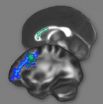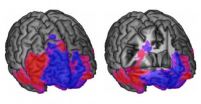(Press-News.org) Irvine, Calif., Aug. 22, 2012 — By discovering how certain viruses use their host cells to replicate, UC Irvine microbiologists have identified a new approach to the development of universal treatments for viral illnesses such as meningitis, encephalitis, hepatitis and possibly the common cold.
The UCI researchers, working with Dutch colleagues, found that certain RNA viruses hijack a key DNA repair activity of human cells to produce the genetic material necessary for them to multiply.
For many years, scientists have known that viruses rely on functions provided by their host cells to increase their numbers, but the UCI study – led by microbiology & molecular genetics professor Bert Semler – is the first to identify how the RNA-containing picornaviruses utilize a DNA repair enzyme to do so.
Study results appear in the early online edition of the Proceedings of the National Academy of Sciences the week of Aug. 20.
RNA viruses have ribonucleic acid as their genetic material (rather than deoxyribonucleic acid, or DNA). Notable human diseases caused by RNA viruses include SARS, influenza, hepatitis C, West Nile fever, the common cold and poliomyelitis.
The UCI and Dutch researchers examined one group of RNA viruses, called picornaviruses, using biochemical purification methods and confocal microscopy to see how they co-opt the functions of a cellular DNA repair enzyme called TDP2 to advance their replication process.
"These findings are significant because all known picornaviruses harbor the target for this DNA repair enzyme, despite the fact that their genetic material is made up of RNA rather than DNA. Thus, identifying drugs or small molecules that interfere with the interaction between the virus and TDP2 could result in a broad-spectrum treatment for picornaviruses," said Semler, who also directs UCI's Center for Virus Research.
By targeting a host cell function required for viral replication and not the virus itself, he added, the primary challenge of antiviral drug resistance may be sidestepped.
As part of their survival mechanism, RNA viruses mutate often, and drugs intended for them usually become ineffective over time. HIV, for example, rapidly mutates, necessitating a combination therapy employing a number of antiviral agents.
A drug that blocks RNA viruses from hijacking DNA repair enzymes may avoid these resistance issues. Semler's lab plans to screen mixtures of drug candidates to find ones that inhibit this process in cells infected by the human rhinovirus, the predominant cause of the common cold.
###Richard Virgen-Slane, Janet Rozovics, Kerry Fitzgerald, Tuan Ngo, Wayne Chou and Paul Gershon of UCI and Gerbrand van der Heden van Noort and Dmitri Filippov of Leiden University in the Netherlands participated in the study, which received support from the American Asthma Foundation and a National Institutes of Health Public Health Service grant.
About the University of California, Irvine: Founded in 1965, UCI is a top-ranked university dedicated to research, scholarship and community service. Led by Chancellor Michael Drake since 2005, UCI is among the most dynamic campuses in the University of California system, with nearly 28,000 undergraduate and graduate students, 1,100 faculty and 9,000 staff. Orange County's second-largest employer, UCI contributes an annual economic impact of $4 billion. For more UCI news, visit www.today.uci.edu.
News Radio: UCI maintains on campus an ISDN line for conducting interviews with its faculty and experts. Use of this line is available for a fee to radio news programs/stations that wish to interview UCI faculty and experts. Use of the ISDN line is subject to availability and approval by the university.
Contact:
Tom Vasich
949-824-6455
tmvasich@uci.edu
UCI maintains an online directory of faculty available as experts to the media. To access, visit www.today.uci.edu/experts.
For UCI breaking news, visit www.zotwire.uci.edu.
UCI microbiologists find new approach to fighting viral illnesses
Study identifies how RNA viruses hijack a host cell to multiply
2012-08-22
ELSE PRESS RELEASES FROM THIS DATE:
Australian general practitioners in training spend less time with peds patients than with adults
2012-08-22
Ann Arbor, Mich. — Australian doctors-in-training spend significantly less time consulting with pediatric patients than they do with adults, according to a new study published in the journal Australian Family Physician.
The study found that the proportion of longer consultations – more than 20 minutes -- for children was significantly less than that for adults and seniors among general practice registrars, says Gary Freed, M.D., M.P.H., the lead author on the study and Australian-American health policy fellow, Australian Health Workforce Institute at the University of ...
Close contact with young people at risk of suicide has no effect
2012-08-22
Researchers, doctors and patients tend to agree that during the high-risk period after an attempted suicide, the treatment of choice is close contact, follow-up and personal interaction in order to prevent a tragic repeat. Now, however, new research shows that this strategy does not work. These surprising results from Mental Health Services in the Capital Region of Denmark and the University of Copenhagen have just been published in the British Medical Journal.
Researchers from Mental Health Services in the Capital Region of Denmark and the University of Copenhagen have ...
Rewired visual input to sound-processing part of the brain leads to compromised hearing
2012-08-22
ATLANTA – Scientists at Georgia State University have found that the ability to hear is lessened when, as a result of injury, a region of the brain responsible for processing sounds receives both visual and auditory inputs.
Yu-Ting Mao, a former graduate student under Sarah L. Pallas, professor of neuroscience, explored how the brain's ability to change, or neuroplasticity, affected the brain's ability to process sounds when both visual and auditory information is sent to the auditory thalamus.
The study was published in the Journal of Neuroscience.
The auditory thalamus ...
Intense prep for law school admission test alters brain structure
2012-08-22
Intensive preparation for the Law School Admission Test (LSAT) actually changes the microscopic structure of the brain, physically bolstering the connections between areas of the brain important for reasoning, according to neuroscientists at the University of California, Berkeley.
The results suggest that training people in reasoning skills – the main focus of LSAT prep courses – can reinforce the brain's circuits involved in thinking and reasoning and could even up people's IQ scores.
"The fact that performance on the LSAT can be improved with practice is not new. ...
Study shows long-term effects of radiation in pediatric cancer patients
2012-08-22
For many pediatric cancer patients, total body irradiation (TBI) is a necessary part of treatment during bone marrow transplant– it's a key component of long term survival. But lengthened survival creates the ability to notice long term effects of radiation as these youngest cancer patients age. A University of Colorado Cancer Center study recently published in the journal Pediatric Blood & Cancer details these late effects of radiation.
"These kids basically lie on a table and truly do get radiation from head to toe. There is a little blocking of the lungs, but nothing ...
New laboratory test assesses how DNA damage affects protein synthesis
2012-08-22
RIVERSIDE, Calif. — Transcription is a cellular process by which genetic information from DNA is copied to messenger RNA for protein production. But anticancer drugs and environmental chemicals can sometimes interrupt this flow of genetic information by causing modifications in DNA.
Chemists at the University of California, Riverside have now developed a test in the lab to examine how such DNA modifications lead to aberrant transcription and ultimately a disruption in protein synthesis.
The chemists report that the method, called "competitive transcription and adduct ...
NASA sees an active tropical Atlantic again
2012-08-22
The Atlantic Ocean is kicking into high gear with low pressure areas that have a chance at becoming tropical depressions, storms and hurricanes. Satellite imagery from NASA's Terra and Aqua satellites have provided visible, infrared and microwave data on four low pressure areas. In addition, NASA's GOES Project has been producing imagery of all systems using NOAA's GOES-13 satellite to see post-Tropical Storm Gordon, Tropical Depression 9, and Systems 95L and 96L.
Tropical Storm Gordon is no longer a tropical storm and is fizzling out east of the Azores. Tropical Depression ...
Thinking and choosing in the brain
2012-08-22
PASADENA, Calif.—The frontal lobes are the largest part of the human brain, and thought to be the part that expanded most during human evolution. Damage to the frontal lobes—which are located just behind and above the eyes—can result in profound impairments in higher-level reasoning and decision making. To find out more about what different parts of the frontal lobes do, neuroscientists at the California Institute of Technology (Caltech) recently teamed up with researchers at the world's largest registry of brain-lesion patients. By mapping the brain lesions of these patients, ...
Multiple factors, including climate change, led to collapse and depopulation of ancient Maya
2012-08-22
TEMPE, Ariz. — A new analysis of complex interactions between humans and the environment preceding the 9th century collapse and abandonment of the Central Maya Lowlands in the Yucatán Peninsula points to a series of events — some natural, like climate change; some human-made, including large-scale landscape alterations and shifts in trade routes — that have lessons for contemporary decision-makers and sustainability scientists.
In their revised model of the collapse of the ancient Maya, social scientists B.L. "Billie" Turner and Jeremy "Jerry" A. Sabloff provide an up-to-date, ...
Time flies when you're having goal-motivated fun
2012-08-22
Though the seconds may tick by on the clock at a regular pace, our experience of the 'fourth dimension' is anything but uniform. When we're waiting in line or sitting in a boring meeting, time seems to slow down to a trickle. And when we get caught up in something completely engrossing – a gripping thriller, for example – we may lose sense of time altogether.
But what about the idea that time flies when we're having fun? New research from psychological science suggests that the familiar adage may really be true, with a caveat: time flies when we're have goal-motivated ...
LAST 30 PRESS RELEASES:
National Reactor Innovation Center opens Molten Salt Thermophysical Examination Capability at INL
International Progressive MS Alliance awards €6.9 million to three studies researching therapies to address common symptoms of progressive MS
Can your soil’s color predict its health?
Biochar nanomaterials could transform medicine, energy, and climate solutions
Turning waste into power: scientists convert discarded phone batteries and industrial lignin into high-performance sodium battery materials
PhD student maps mysterious upper atmosphere of Uranus for the first time
Idaho National Laboratory to accelerate nuclear energy deployment with NVIDIA AI through the Genesis Mission
Blood test could help guide treatment decisions in germ cell tumors
New ‘scimitar-crested’ Spinosaurus species discovered in the central Sahara
“Cyborg” pancreatic organoids can monitor the maturation of islet cells
Technique to extract concepts from AI models can help steer and monitor model outputs
Study clarifies the cancer genome in domestic cats
Crested Spinosaurus fossil was aquatic, but lived 1,000 kilometers from the Tethys Sea
MULTI-evolve: Rapid evolution of complex multi-mutant proteins
A new method to steer AI output uncovers vulnerabilities and potential improvements
Why some objects in space look like snowmen
Flickering glacial climate may have shaped early human evolution
First AHA/ACC acute pulmonary embolism guideline: prompt diagnosis and treatment are key
Could “cyborg” transplants replace pancreatic tissue damaged by diabetes?
Hearing a molecule’s solo performance
Justice after trauma? Race, red tape keep sexual assault victims from compensation
Columbia researchers awarded ARPA-H funding to speed diagnosis of lymphatic disorders
James R. Downing, MD, to step down as president and CEO of St. Jude Children’s Research Hospital in late 2026
A remote-controlled CAR-T for safer immunotherapy
UT College of Veterinary Medicine dean elected Fellow of the American Academy of Microbiology
AERA selects 34 exemplary scholars as 2026 Fellows
Similar kinases play distinct roles in the brain
New research takes first step toward advance warnings of space weather
Scientists unlock a massive new ‘color palette’ for biomedical research by synthesizing non-natural amino acids
Brain cells drive endurance gains after exercise
[Press-News.org] UCI microbiologists find new approach to fighting viral illnessesStudy identifies how RNA viruses hijack a host cell to multiply




